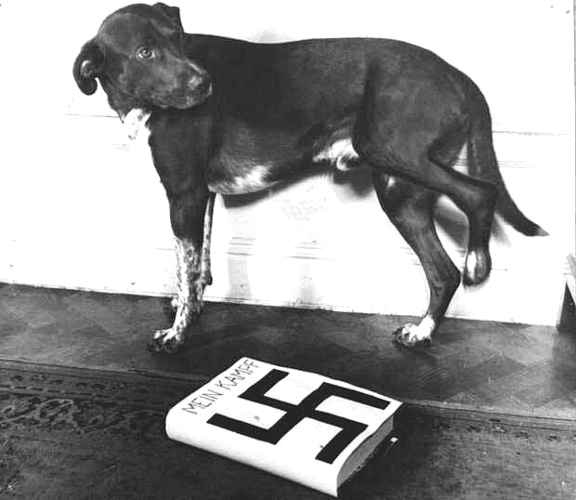In the beginning of the 20th century, there was an excitable boy living in Austria, who had not achieved some successes in studying, nor among the girls, he was trying to draw, but he did not have the talent in fine arts as well. And so the boy began to think deeply about who is responsible for his “misfortune”? He thought and thought and eventually found the answer that the Jews are to be guilty. You definitely have heard about this young man, his name was Adolf.
Later it turned out that in some of the areas he still has the talent, and has achieved “great success” by some (unacceptable to me) standards. But, since a wrong starting point was embedded in the base of his outlook of the world (in looking for guilty), Adolf’s ‘successes’ cost expensive to the world.
It is not necessarily, of course, to have mental disorders to pay tribute to such a wrong way of thinking: millions of quite adequate people just think so. It is very easy to look for guilty beyond you, it dismisses you from the responsibility, on the other hand restricts your liberty. The world must “be fair” to you (it is a very vague definition by itself), but since it is “unjust” in the real life, you have no choice left but to protest against the injustice. Sometimes, those protests are called “struggle”. Main Kampf, so to speak.
Anti-Semitism, racism in general, is the outstanding form of this kind of thinking, though privately, but “classical”. When a representative of a nation states that the whole art of the world or the whole business is in the hands of the Jews, and they hinder the progress of the other, when people in Russia think that migrants (including also Armenian) take away part of their jobs and, therefore, well-being, when people in Armenia say that Karabakh people came and ruled over us, all of these, no matter what percentage is right, is a mechanism to look for the blame and to create a convenient image of the enemy.
The worst scenario is when people begin to “fight” against it. In other words, you can not become a violinist or a businessman that no Jews can hinder you, I consider street-broom lower of your dignity, but you get angry when it does Tajik or Uzbek, you are unable to realize your ambitions in Armenia and have became “offender” … And “fight.” In the end of Albert Kamyu’s novel, “The Plague”, what was the doctor Rieux doing? Was he fighting against the plague? No, he was treating people for plague. This is the true way. “The image of an enemy”, of course, is also a convenient way of manipulating people, it is giving an easy “edible” stereotype, which releases from the necessity to think. “Any tale is good until a new one is not invented.” These are the words of one of James Joyce’s heroes.
ARAM ABRAHAMYAN
Photo from http.//www.kilroywashere.org
























































